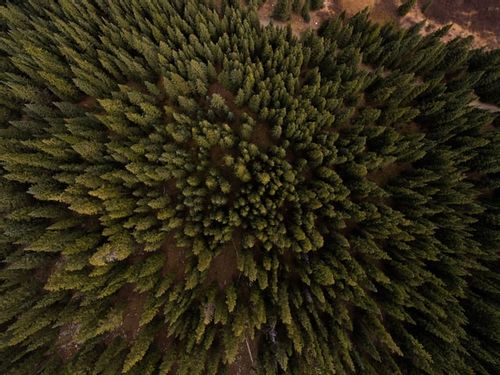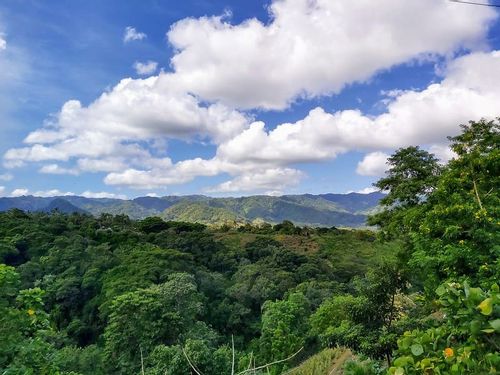FOR ALL AGES
If you're looking for fun and new ways to get your kids excited about science then these trivia questions could be the perfect solution.
Framing teaching in terms of trivia or fun facts is a great way to engage your children with learning. You may use this sci quiz to add to your home-schooling or have it as a fun extra activity to do together over dinner.
These question and answer quizzes are guaranteed to get the whole family excited about science trivia! The fun science quizzes are a great way to spend time together and have fun while you're doing it. Get your kids excited about science today!

Q: Name the five human senses.
A: Sight, smell, touch, taste and hearing.
Q: What do we call how hot or cold something is?
A: Temperature.
Did you know the boiling point of water is 100 degrees celsius? That's just under 3 times our body temperature!
Q: What material is picked up by magnets?
A: Metal.
Did you know that a compass uses a magnet to help people find their way? This is because the world has magnetic poles that the compass needle is attracted to.
Q: What three things do most plants need to grow?
A: Sunlight, Water and Soil.
Q: How many teeth do adults have?
A: 32 (which is 12 more than children).
Fun Fact: The adult human body has 206 bones in it.
Q: What powder do flowers make?
A: Pollen.
Q: Name the four seasons.
A: Spring, Summer, Autumn and Winter.
Did you know that the Earth revolves around the sun which determines the length of our day and also our seasons? The sun rises in the east and sets in the west.
Q: What is the solid version of water called?
A: Ice.
Q: Where do humans get their energy from?
A: Food.
Fun Fact: Cucumbers are actually fruits, not vegetables! They are part of the melon family.

Q: What are the three states of matter?
A: Solid, Liquid and Gas.
Q: What do you use to test a scientific theory?
A: An experiment.
Q: How many planets are there in our solar system?
A: Nine.
Fun Fact: This fun acronym will help you remember the order of the planets from the closest to the sun to the farthest: My Very Easy Method Just Set Up Nine Planets = Mercury, Venus, Earth, Mars, Jupiter, Saturn, Uranus, Neptune and Pluto.
Q: What do you call something that is a poor conductor?
A: An insulator.
Q: How long does it take the earth to fully orbit the sun?
A: 1 year.
Did you know the sun is 93 million miles away from the Earth? That means although it looks tiny it is actually really massive!
Q: What force stops humans from floating into space?
A: Gravity.
Q: What are the three major types of rocks?
A: Sedimentary, metamorphic and igneous.
Did you know that sedimentary rock covers about 75% of the Earth's surface? BUT below that 95% of rock under the crust are igneous rocks!
Q: What word would you use to describe a material that is see-through?
A: Transparent.
Q: What gas do trees produce?
A: Oxygen.
Fun Fact: Elephants are the only animals in the world that have 4 forward-facing knees! Every other 4 legged animal has at least one pair that go the other way.

Q: What is the name for the process of a liquid becoming a gas?
A: Evaporation.
Q: What test is used to detect the presence of hydrogen?
A: The squeaky-pop test (aptly named after the sound it makes in reaction to a flame).
Did you know that the Earth's atmosphere is made up of 78% Nitrogen and only 21% Oxygen? (The other gasses are Argon which is 0.93% and Carbon Dioxide which is 0.04% with traces of neon, helium, methane, krypton and hydrogen, as well as water vapour).
Q: What force stops a ball rolling on the ground forever?
A: Friction.
Q: What are the three main behaviours of waves?
A: Reflection, Refraction and Diffraction.
Fun Fact: Killer Whales (also known as Orcas) are not in fact whales at all but are actually the largest breed of dolphin in existence.
Q: What do red blood cells transport around the human body?
A: Oxygen and nutrients.
Q: What process do plants use to make their own food?
A: Photosynthesis.
Q: What does the atomic number of an element represent?
A: The number of protons in the nucleus of an atom.
Did you know that pineapples take two years to grow? No wonder they are so delicious!
Q: What are Newtons 3 laws of motion?
A: 1) Every object will continue to move in a straight line unless another force interferes. 2) Force equals mass times acceleration. 3) For every action, there is an equal and opposite reaction.
Q: What planet in our solar system has the most moons? Bonus point if you can say exactly how many it has.
A: Saturn - it has 82 moons!
Fun Fact: The solar system is made up of so many elements: planets, moons, comets, asteroids, minor planets, dust and gas, and EVERYTHING revolves around the sun!
Read The Disclaimer
At Kidadl we pride ourselves on offering families original ideas to make the most of time spent together at home or out and about, wherever you are in the world. We strive to recommend the very best things that are suggested by our community and are things we would do ourselves - our aim is to be the trusted friend to parents.
We try our very best, but cannot guarantee perfection. We will always aim to give you accurate information at the date of publication - however, information does change, so it’s important you do your own research, double-check and make the decision that is right for your family.
Kidadl provides inspiration to entertain and educate your children. We recognise that not all activities and ideas are appropriate and suitable for all children and families or in all circumstances. Our recommended activities are based on age but these are a guide. We recommend that these ideas are used as inspiration, that ideas are undertaken with appropriate adult supervision, and that each adult uses their own discretion and knowledge of their children to consider the safety and suitability.
Kidadl cannot accept liability for the execution of these ideas, and parental supervision is advised at all times, as safety is paramount. Anyone using the information provided by Kidadl does so at their own risk and we can not accept liability if things go wrong.
Kidadl is independent and to make our service free to you the reader we are supported by advertising.
We hope you love our recommendations for products and services! What we suggest is selected independently by the Kidadl team. If you purchase using the buy now button we may earn a small commission. This does not influence our choices. Please note: prices are correct and items are available at the time the article was published.
Kidadl has a number of affiliate partners that we work with including Amazon. Please note that Kidadl is a participant in the Amazon Services LLC Associates Program, an affiliate advertising program designed to provide a means for sites to earn advertising fees by advertising and linking to amazon.
We also link to other websites, but are not responsible for their content.
Was this article helpful?



Browse Category



We’ll send you tons of inspiration to help you find a hidden gem in your local area or plan a big day out.



Check your inbox for your latest news from us. You have subscribed to:
Remember that you can always manage your preferences or unsubscribe through the link at the foot of each newsletter.